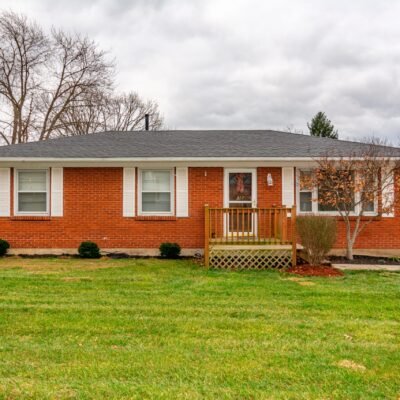The UK rental market can often feel like the Wild West – especially in London. Before you even get a place, you have to sift through endless ads and deal with streams of messages (that usually don’t let up during the working day).
If you’re house-sharing, it can be a lot like dating: you’re “on the apps” (Rightmove and SpareRoom) and if you’re too slow to respond, chances are someone else will have swooped in and taken it from you. You snooze, you lose, buddy.
Even when you do secure a few viewings, it’s savage out there. It can often feel like an audition or a nervy first date; a performance you put on for landlords and/or prospective flatmates, to demonstrate the best version of yourself.
(I personally find the worst question to answer is whether you like to “party”. Say “no” and they’ll consider you some freakish recluse who has no friends; say “yes” and they’ll think you’re the kind of person who makes a bunch of new mates and brings them back to keep the party going until 10am.)
They whittle you down until – finally, after several knock-out stages – you’re in the final three. The last stage of the game? A bidding war, of course (yes, even on rent prices). It’s exhausting.
And it isn’t just the flat-hunt that can be a faff. Moving house has got to be one of the most stressful, unenjoyable experiences going. You realise, during the packing process, just how much crap you have accumulated over the years and start getting ruthless with the culling process – only to realise when you get to your new digs that you did actually need that second pair of kitchen tongs, after all.
A lot of people in London don’t drive, either – meaning you’re forced to pay extortionate rates to hire a “man with a van” (who, more often than not, refuses to help you move heavy items or collapse your Ikea wardrobe). Or, you’re forced to enlist the help of your friends – resentfully. It’s bad enough moving yourself, let alone signing up to do it for someone else…
Moving is a sweaty, laborious and physical ritual that sucks all the joy out of discovering a new area or starting afresh – at least for the first few days. I hate it. And that’s before we even get into the instability of being a renter. Margaret Thatcher introduced “no-fault evictions” in 1988, which let landlords evict tenants without giving a reason. Just what we needed – to give landlords more power over tenants…
The lack of rent caps also means you are forever at the mercy of your landlord. That’s a real everyday worry, especially for our health (it’s estimated that around 11 per cent of private rentals in England in 2021 had damp problems).
But despite all of these very real issues, I’m a long-term renter for a very good reason.
To me, it seems perfectly obvious that those who own properties are no less “secure” (unless, of course, you own the place outright or have bags of money). You’re not: you’re a slave to rates. Not only does Generation Z pay double in mortgage payments compared to older generations, but those very same rates are expected to go up – within days. Not to mention taking on sole responsibility for repairs, plumbing problems, the upkeep of communal areas, the cost of heating…
It strikes me as odd that so many people willingly buy into the idea that owning a house means you’re somehow automatically “successful and free”. I’ve noticed this is particularly rife among men in their early thirties – several of my exes had a real obsession with getting on the property ladder.
Don’t they realise that despite initiatives like the stamp duty holiday during Covid or the Help to Buy scheme, many owners have since been forced to take out second mortgages or surrender their homes because they simply can’t keep up with repayments?
That doesn’t scream “freedom” to me.
For me, renting is freedom. Freedom from being restricted to one area for lengthy periods of time – if not my entire life; freedom from mortgage lenders; freedom from maintenance costs; freedom from nimby neighbours. If I want to, I can pack up my things and move with relatively no hassle and enjoy my place without feeling the burden of ownership – aka, the gilded cage.
Germany is a great example of this – it has the highest number of renters in the EU. In 2022, 53.5 per cent of its population lived in rented accommodation – France wasn’t too far behind, at 36.6 per cent. They don’t care about ownership so much as they do having a roof over their heads. They have better rental conditions and agreements as a result – and their economies don’t suffer because of it either; that same year, the German economy increased by 1.9 per cent and France’s by 2.6.
Then there’s the fact that most millennials like me – and Gen Z – are bearing the brunt of previous recessions and the current cost of living crisis. So implausible is owning a property these days that many of us have just given up on the dream altogether. And who could blame us?
Honestly, once you stop buying into this notion that owning property is to have your life in order, it’s incredibly liberating. You realise that there’s so much more to life than scrimping and saving; than stopping having fun to save up tens of thousands for a deposit for a house or flat you’ll spend years paying off.






